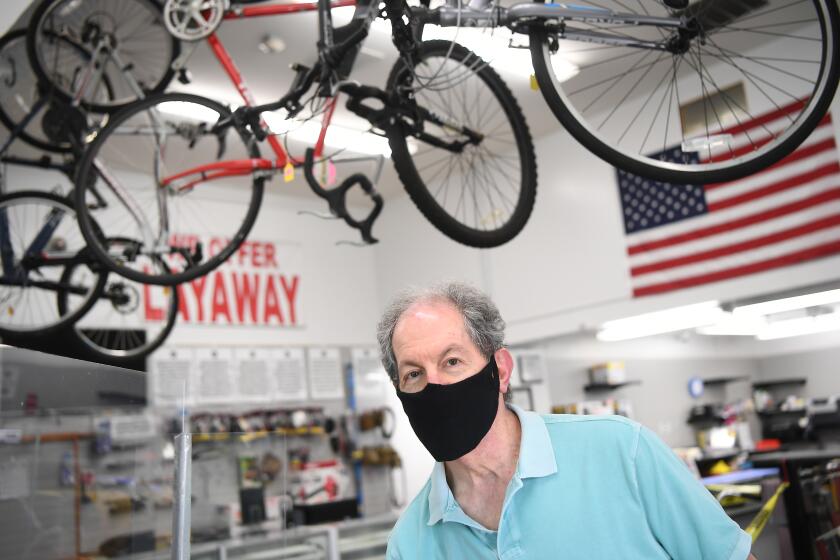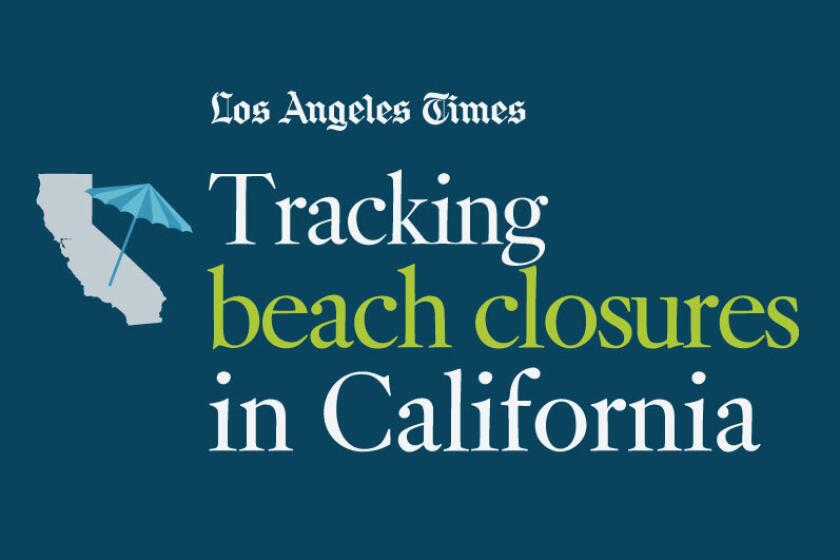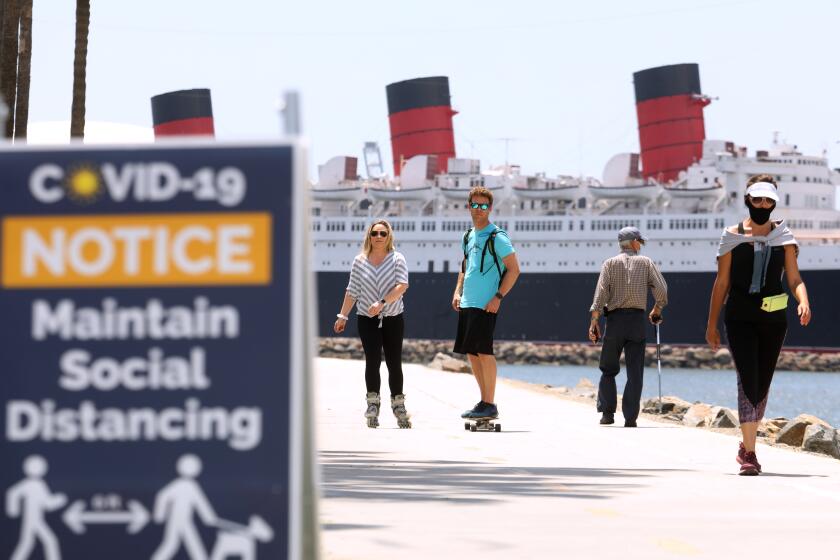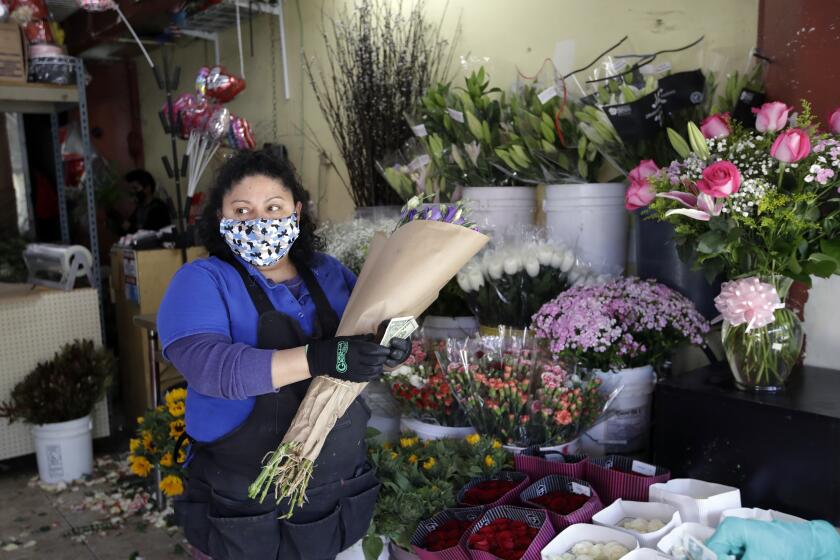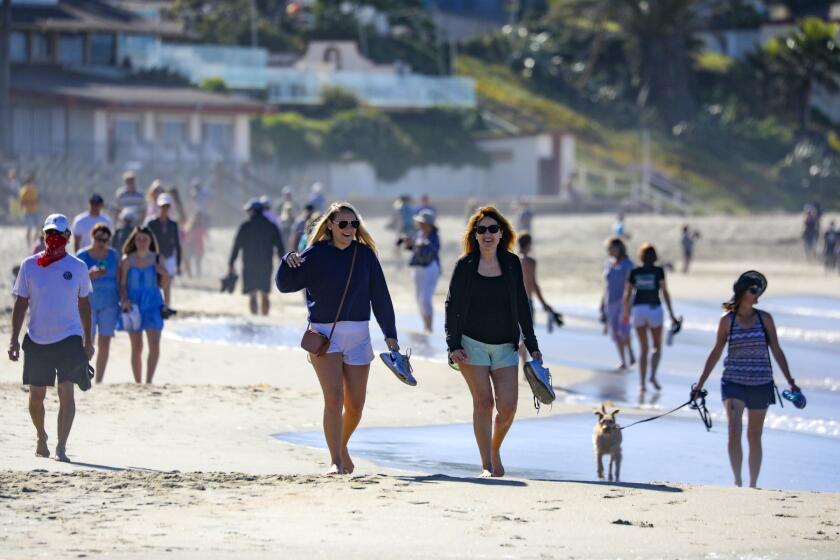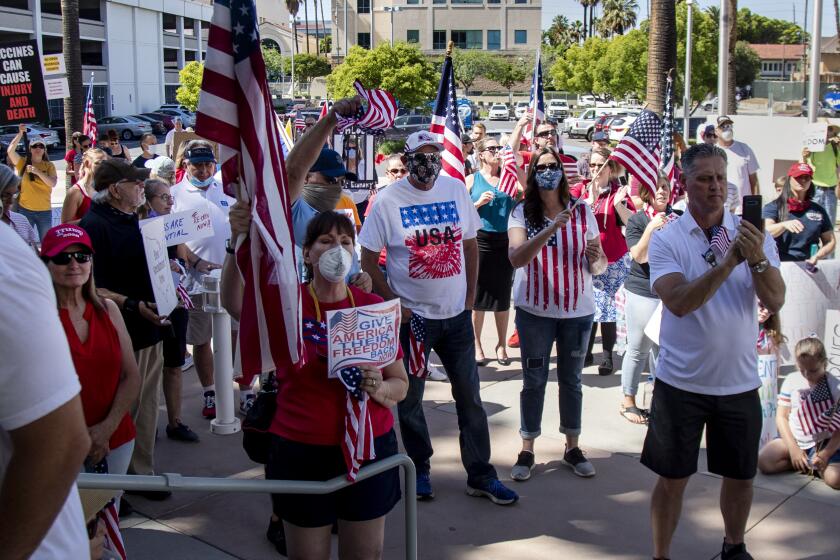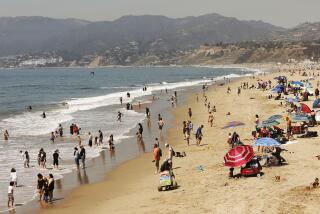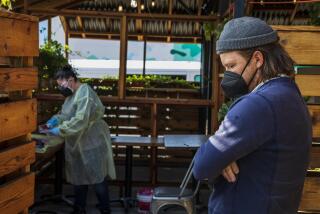California reopening begins Friday: Here is what it is going to look like
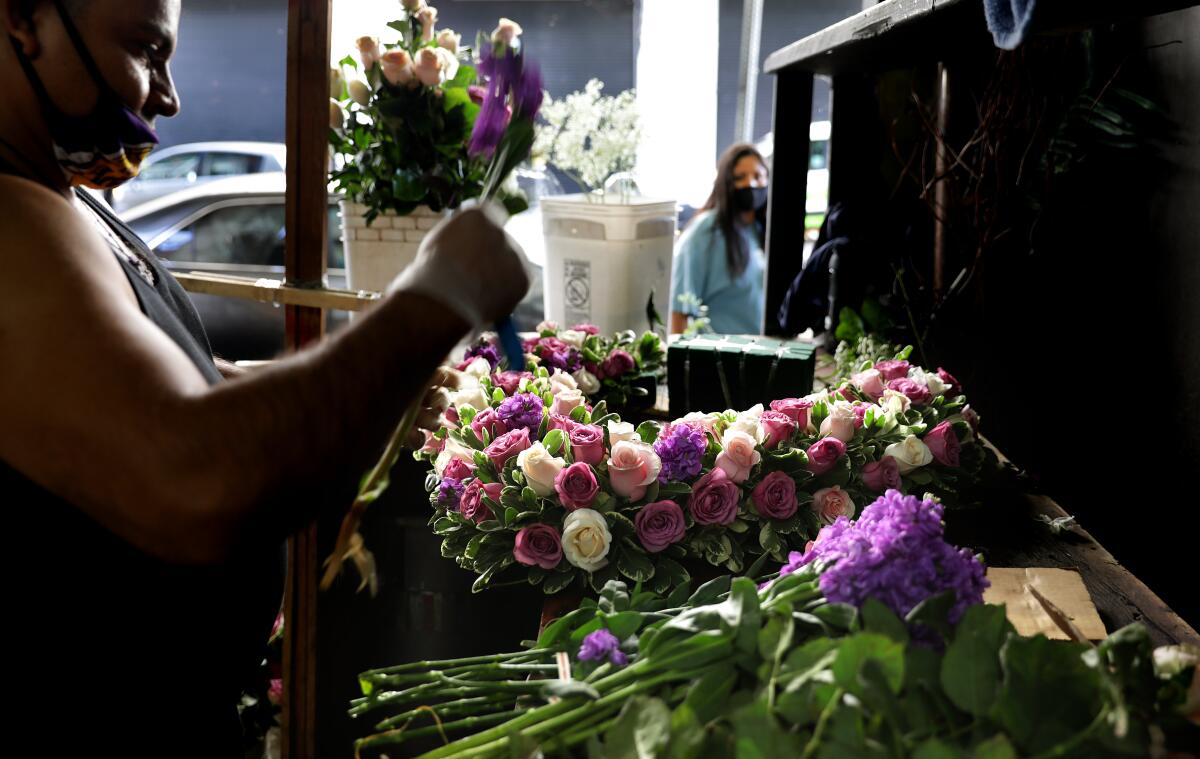
California will begin the first steps in easing stay-at-home orders Friday.
The latest changes in Gov. Gavin Newsom’s four-stage plan to gradually reopen the state expand decision-making at the local level, allowing some communities to move further ahead into the second phase of the reopening process at their own pace and open more businesses beyond those outlined in the statewide policy.
The changes will affect a small set of businesses at first and are unlikely to jump-start the coronavirus-battered economy in a significant way.
But officials say it’s a start.
Newsom on Monday announced modest changes to take effect Friday. Bookstores, music stores, toy stores, sporting goods stores, clothing stores and florists can reopen for curbside pickup. Additional businesses could be added to the list later, also with curbside pickup. Factories that supply those businesses would also be allowed to resume operating.
Here is where California stands:
It’s not much, but Los Angeles County has announced the first steps in easing stay-at-home rules that have slowed the spread of the coronavirus.
Los Angeles County
L.A. County officials on Wednesday laid out first steps toward easing stay-at-home orders, which have been credited with slowing the spread of the coronavirus. The county remains at the center of the outbreak in California, with more than 1,300 deaths and 28,000 confirmed cases, including about 800 new cases reported Wednesday.
Under the county plan, select retailers — including those that sell flowers, toys, music, books, clothing and sporting goods — car dealers and other types of bricks-and-mortar businesses will be allowed to open for curbside pickup only starting Friday. In-store shopping will not be permitted.
Under the plan, recreational amenities including golf courses and trails will also reopen Friday. People still must adhere to physical distancing requirements and wear face coverings when they’re in proximity to others.
At the same time some rules are being relaxed, Los Angeles city leaders are also considering more restrictions.
Among them is a requirement that all Angelenos wear a mask or other facial covering whenever they leave their homes, a proposal championed by City Councilman Paul Koretz as a way to prevent new infections.
“The last thing we need is another spike in cases to set us back as we’re trying to move forward,” Koretz said. “People still walk dogs. They still ride bicycles. They still may stop and chat with their neighbors. This would reduce the spread.”
The City Council has not decided to draft such a law, but voted Wednesday to ask city staffers to report back on health guidelines for wearing face coverings, what requirements have been imposed by other cities and how such rules might be enforced.
And beginning Monday, anyone traveling through Los Angeles International Airport must wear a mask or face covering, Mayor Eric Garcetti announced.
Health officials on Wednesday also outlined for the first time a five-stage plan for reopening L.A. County. Though the first retailers will be permitted to reopen with conditions this week under Stage 2, the county hopes to allow other low-risk business — including manufacturers, offices and larger retail — to also open their doors soon.
Stage 2 also allows for the reopening of libraries, museums, cultural centers and galleries. The county has not provided a proposed date when those spaces could again be accessible.
L.A. County beaches remain closed for the time being.
San Diego County
With some people calling for a faster reopening of businesses and others urging caution about moving too quickly, county health officials say they are sticking with a plan to begin a slow and phased reopening of some retailers Friday.
“San Diegans have sacrificed much to flatten the curve, and many are now struggling,” City Councilman Scott Sherman said Wednesday, referring to the fact that there has not been a surge of patients in the local hospital system. “Our region has shown that we can act responsibly. I urge the County Board of Supervisors to begin immediate work so our region can move more quickly through Phase 2 and open more businesses.”
Economists have suggested that the unemployment rate could be more than 20% in San Diego County, elected officials said.
“The only way to get our region back to work is through our small businesses,” San Marcos Mayor Rebecca Jones said. “Ninety-eight percent of businesses in our region are small businesses. It’s only right that small-business owners who can open responsibly be given the same opportunities as big box corporations.”
El Cajon Mayor Bill Wells said, “I appreciate the strong efforts of the governor to flatten the curve of this dangerous virus, but now is the time to give local governments more control to safely open up our economy.”
County Supervisor Nathan Fletcher said the fact that the curve had been flattened was not a sign that the crisis was over, but rather an indication that the county’s response has worked.
“The integrity of our health system remains at risk if we don’t do this responsibly, if we don’t do it in the right order and if we don’t do it in the right way,” he said.
While promising to review requests to modify the state’s stay-at-home order, Gov. Gavin Newsom remains loath to give a specific date.
Ventura County
Ventura County is gearing up to allow some of its businesses to open by the end of the week.
Curbside pickup will be available at bookstores, clothing stores, florists and sporting goods stores, according to County Executive Officer Michael Powers. Associated manufacturers and supply chains for these retail stores will also be allowed to open.
The county is expected to receive more guidance from the governor’s office before Friday on how such openings should be handled.
“Social distancing will stay with us for a while,” said Rigoberto Vargas, the county’s public health director, during Tuesday’s Board of Supervisors meeting.
Vargas told the board that health officials are proceeding with optimism and caution, and that they’ll monitor the opening in case they need to reinstate stay-at-home measures.
The director of the San Francisco Department of Public Health told residents Wednesday not to visit their mothers on Mother’s Day, even if wearing masks and keeping six feet apart.
San Francisco Bay Area
Officials say the Bay Area’s stay-at-home orders will continue to be enforced and most stores will remain closed even as statewide guidelines are relaxed.
Mayor London Breed said Wednesday the city will retain tighter restrictions than what the state requires, and that has “everything to do” with the numbers of cases and deaths in the Bay Area.
“The numbers are still going up,” Breed said. “The number of deaths are still going up and we have not lowered the curve, and we have to be mindful of that.
“The more that people have interactions with other people, the [greater the] likelihood that other folks will continue to get infected.”
Dr. Grant Colfax, San Francisco’s public health director, said one of the goals that need to be met before reopening is the ability to trace contacts of infected people and test them for the coronavirus.
“We are still building our surveillance system across the Bay Area,” he said. To do that, local officials are working with scientists from the city’s public hospital, UC San Francisco and UC Berkeley.
“We must hold steady and let the data guide us,” he said.
Dana Point, Huntington Beach, Laguna Beach, San Clemente, Newport Beach and Seal Beach allow beach access for active recreation.
Orange County
After seeing Orange County beaches closed by Newsom last week, officials cheered as most of them were allowed to reopen this week.
On April 28, the county released some general guidelines for how businesses could operate as stay-at-home orders are relaxed.
Employers should require customer-facing workers to wear disposable gloves or wash their hands or use hand sanitizer every 30 minutes, according to the guidelines.
“Face coverings should be provided to all employees,” the guidelines state. “All employees, before starting a shift, should have their temperatures taken and not be permitted to work upon a temperature reading above 100.4 degrees.”
Patrons “should also wear appropriate face coverings,” the guidelines add.
Businesses also should “make every effort to limit touch points,” according to the guidelines, and “significantly increase [the] frequency of sanitizing workstations and equipment.”
The guidelines also include wording related to physical distancing in the workplace — “a minimum of six feet should be maintained between customer-facing employees and the general public and, to the extent practical, between employee workstations. Where six feet ... between workstations is impractical, face coverings should be worn.”
When practical, businesses also should allow telecommuting, according to the guidelines.
Riverside County Board of Supervisors voted to delay a vote to reopen the county amid the coronavirus crisis and wait for Gov. Gavin Newsom’s guidance.
Riverside County
The Riverside County Board of Supervisors, after more than eight hours of debate, voted Tuesday to delay a vote on whether to rescind the county’s health orders and wait until Newsom provides more guidelines later this week.
Riverside County has some of the strictest public health orders in the state.
Officials met to discuss whether the county should lift local orders that closed schools, restricted golf courses, and required people to stay six feet apart and wear facial coverings while grocery shopping and during other essential activities.
Cameron Kaiser, the county’s public health officer, had put the restrictions in place until June 19.
San Bernardino County officials warn that residents still need to cover their faces and practice social distancing.
San Bernardino County
Local officials said they are prepared to allow some low-risk businesses to reopen when Newsom gives the go-ahead. Those could include retailers that can accommodate social distancing.
Some outdoor public spaces also could reopen.
“The county has progressed in fighting COVID-19, and while we’re well-prepared and ready to respond to a surge, we’re happy to report in the last 30 days, as a county, we’ve flattened the curve,” county Chief Executive Leonard Hernandez told the San Bernardino Sun.
The county plans to submit a recovery plan Thursday.
Times staff writers Luke Money, Rong-Gong Lin II, Kailyn Brown and Phil Willon contributed to this report.
More to Read
Sign up for Essential California
The most important California stories and recommendations in your inbox every morning.
You may occasionally receive promotional content from the Los Angeles Times.
